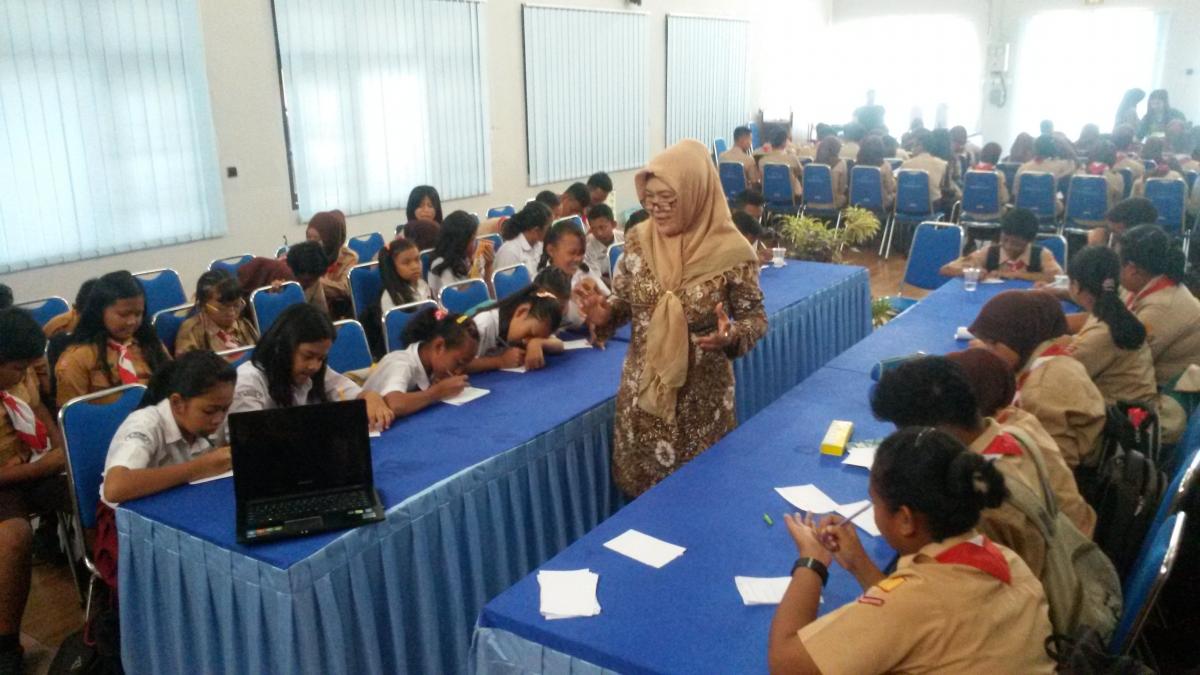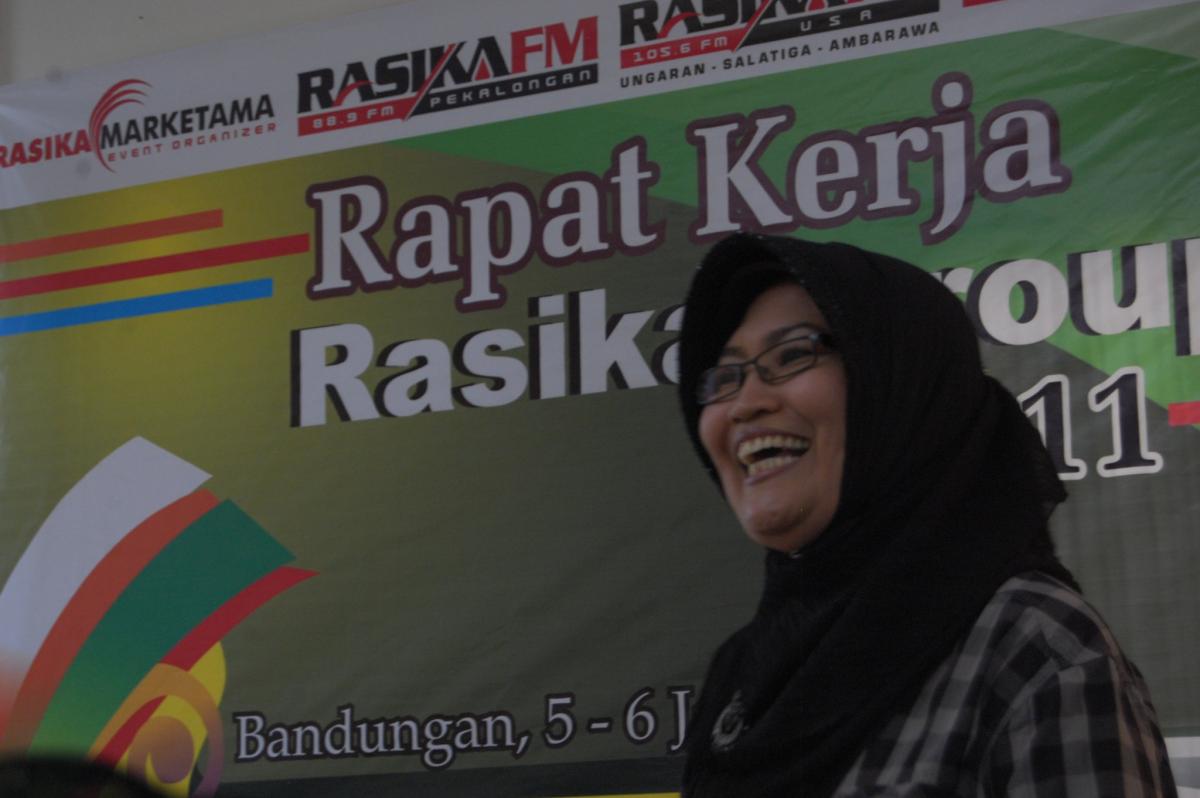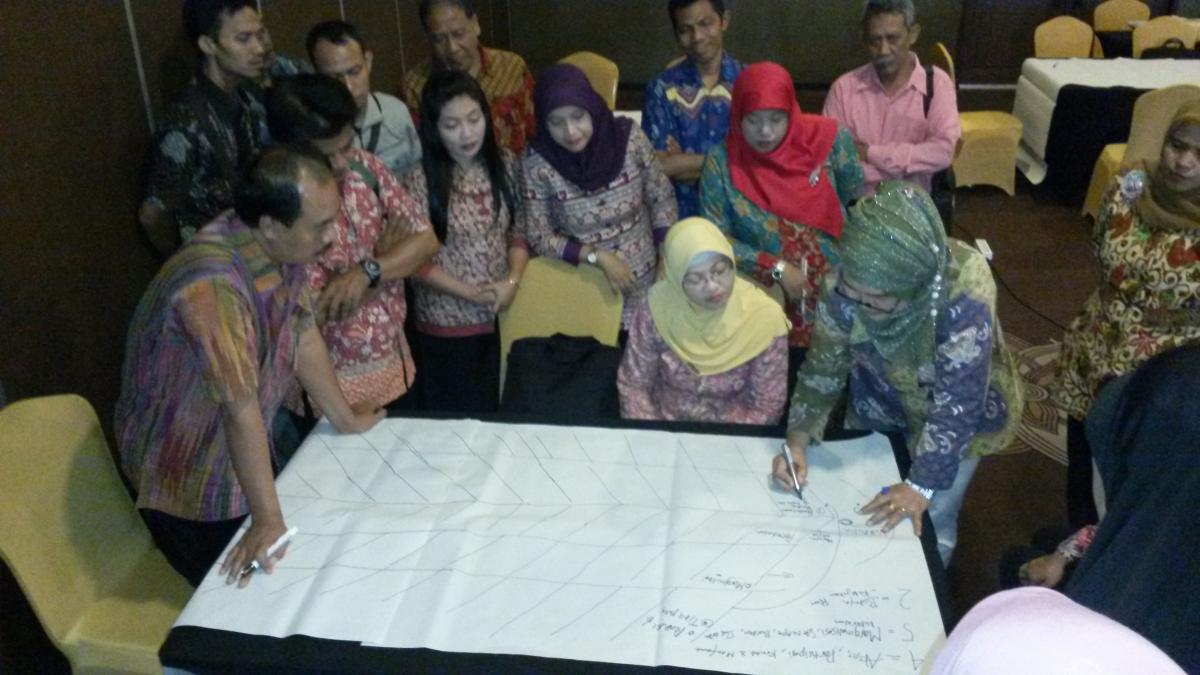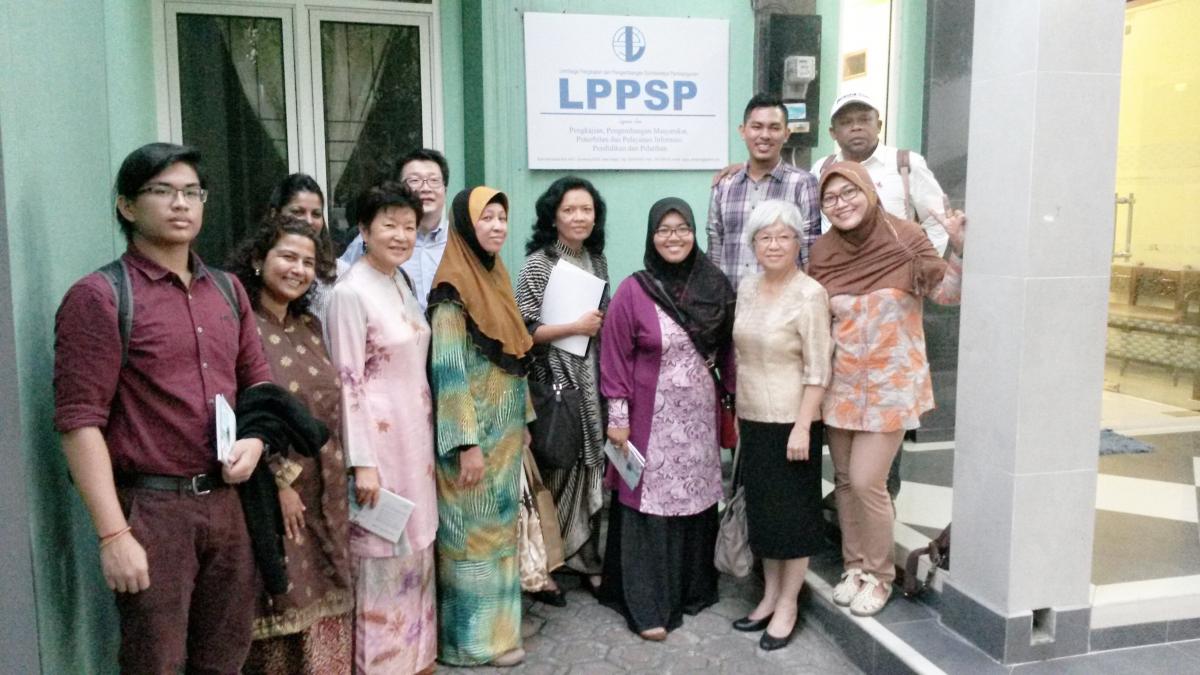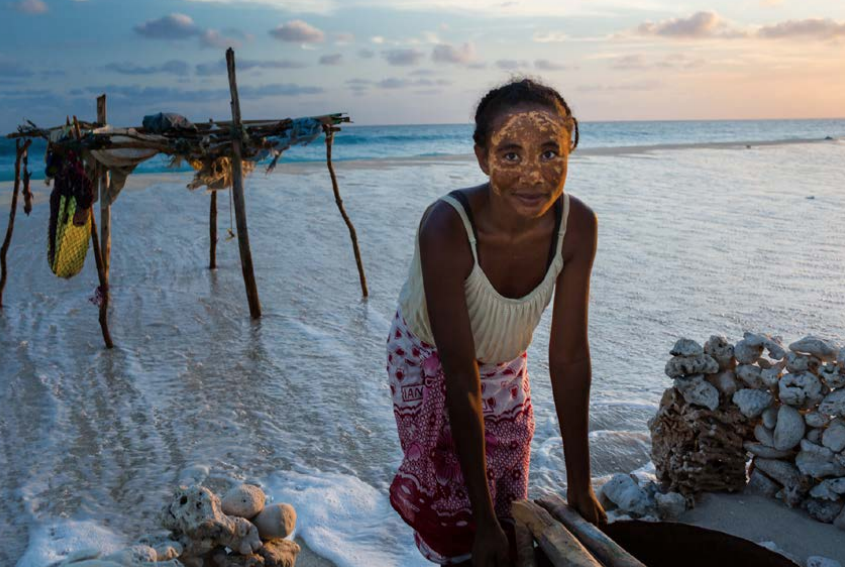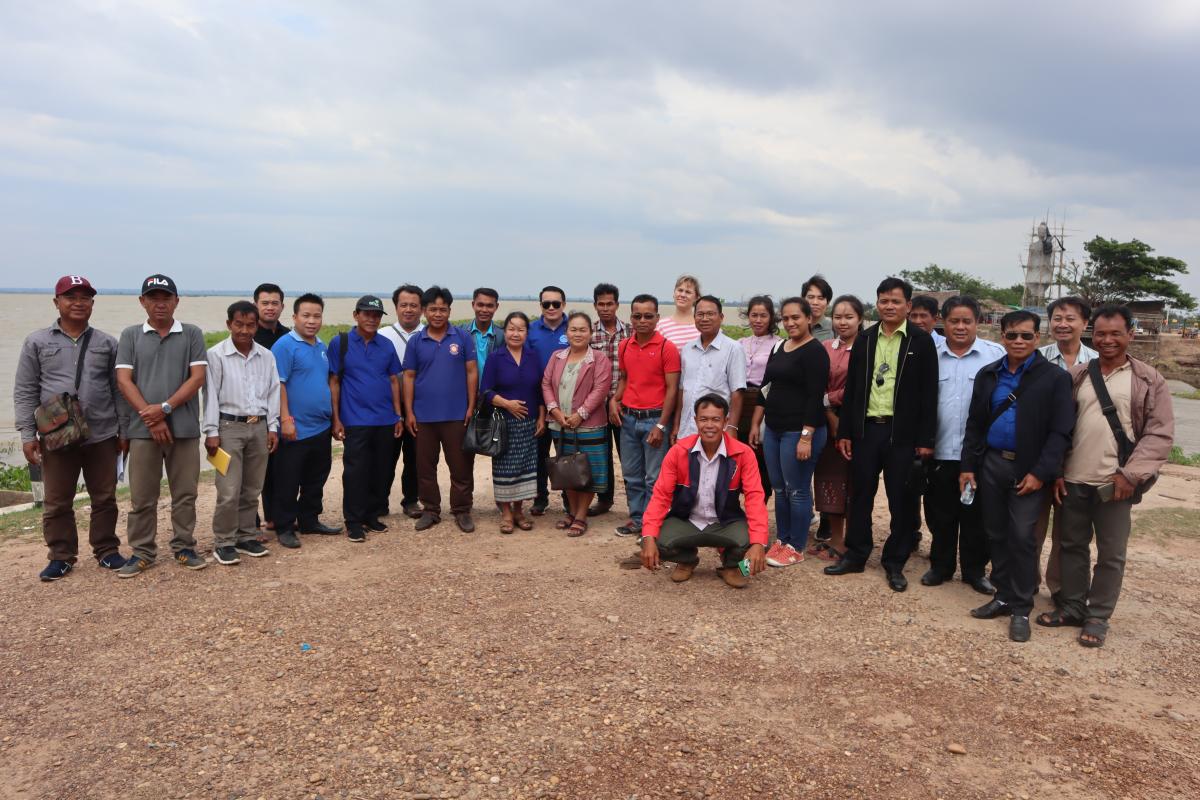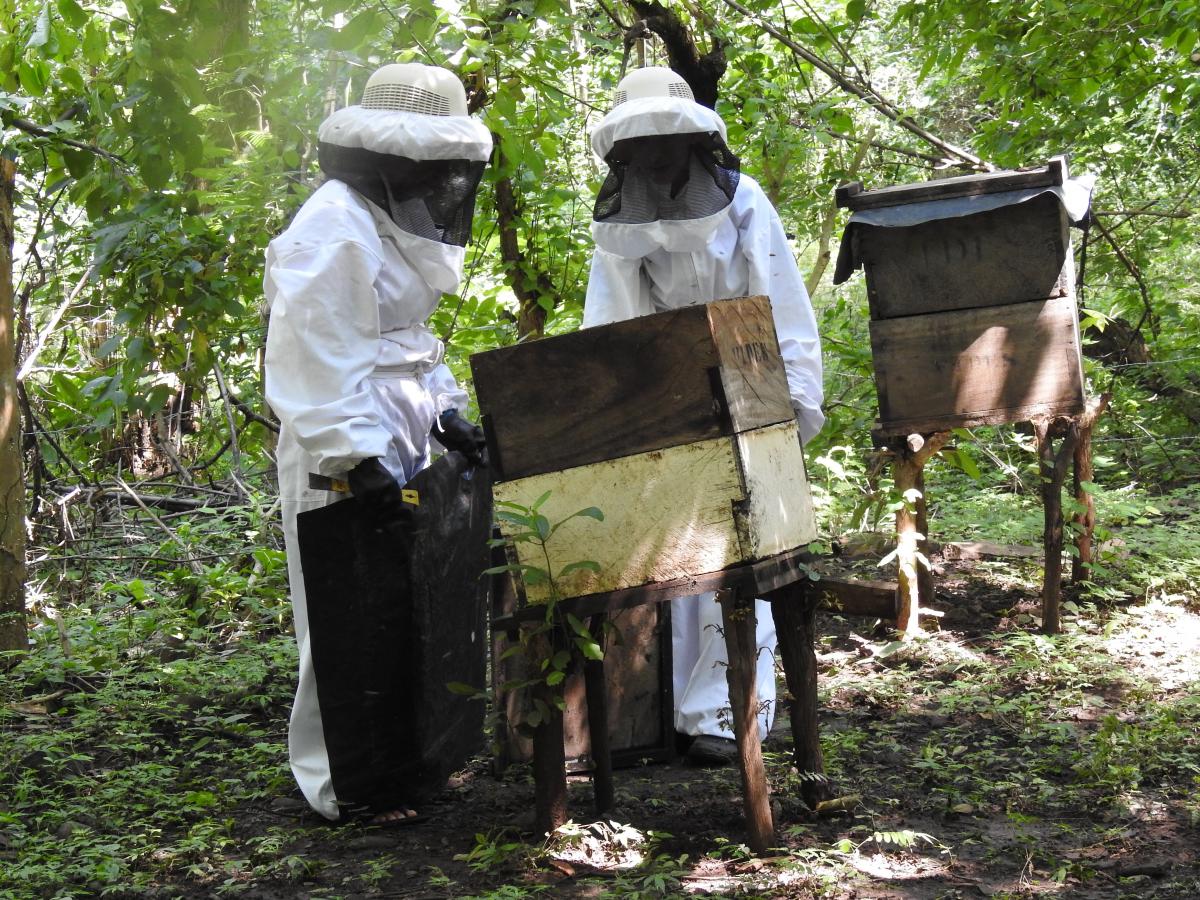Gender Equity And Participatory Development: Portrait Of A Pioneer (Part 2)
Ms. Indra Kertati, affectionately known as Ibu Indra to many, is Director of Lembaga Pengkaijiandan Pengembangan Sumberdaya Pembangunan Semarang (LPPSP), and the driving force behind community coastal conservation projects in rural Indonesia. In Part 2 of our profile (Part 1 can be accessed by clicking the link under the Links section on the right-hand side of this page) she discusses integrating gender equity into conservation efforts.
A gender champion, Indra takes conservation work to another level. “Women are still trapped in the Indonesian culture and they cannot walk out of its fences on their own,” she reflects.
“Living in a highly patriarchal society, women depend on decisions made by men. They are systematically subordinated into household work. They face marginalisation, which contributes to their disempowerement. Access to, and control over, resources for women is definitely much lower than for men in this society.”
With a strong belief that women are key to sustainable development, Indra has become a specialist in designing gender equity projects, and creating tools that allow the government to implement gender responsive programmes and activities that are effective at the provincial and village level.
This has been a long struggle for Indra and her team. Faced with shortcomings of one of her pilot projects, Indra returned to work closely with women’s groups on the ground to try to learn more about the pressing problems faced by the communities and the multitude of issues surrounding gender. She also began studying different types of analytical approaches in order to develop a new gender analysis tool. This tool can be used for medium- or short-term analyses with a potential for long-term strategic planning and development.
According to Indra, the challenge is to achieve a “buy-in” from the local Ministry of Women’s Empowerment and Child Protection. She hopes that by introducing the new gender analysis tool through a series of trainings, the government will be able to implement more gender responsive programmes and activities.
“I hope that the robust data and excellent participatory processes seen in this tool will help achieve good results,” says Indra, beaming with optimism.
Indra is now thinking ahead by developing a module for gender responsive planning and budgeting at village level.
With Indra at the helm, LPPSP’s ability to reach out to various stakeholders to influence policies and implement programmes in their work on conservation, gender equality and community empowerment, helps ensure that such developmental programmes continue to be sustainable for generations to come.
LPPSP is working with MFF to implement a sixteen-month long Large Grant Facility project on community-based coastal management in Gejoyo, Demak. Working closely with the local Development Planning Agency (BAPPEDA), the project has helped reverse the adverse effects of development by expanding the mangrove range. A total of 286,000 mangroves seedlings were planted from 2011 to 2013.
Mangroves for the Future (MFF) is a partnership-based regional initiative which promotes investment in coastal ecosystem conservation for sustainable development. MFF focuses on the role that healthy, well-managed coastal ecosystems play in building the resilience of ecosystem-dependent coastal communities in Bangladesh, Cambodia, India, Indonesia, Maldives, Myanmar, Pakistan, Seychelles, Sri Lanka, Thailand and Viet Nam. The initiative uses mangroves as a flagship ecosystem, but MFF is inclusive of all types of coastal ecosystem, such as coral reefs, estuaries, lagoons, sandy beaches, sea grasses and wetlands. MFF is co-chaired by IUCN and UNDP, and is funded by Danida, Norad, and Sida and the Royal Norwegian Embassy in Thailand.
